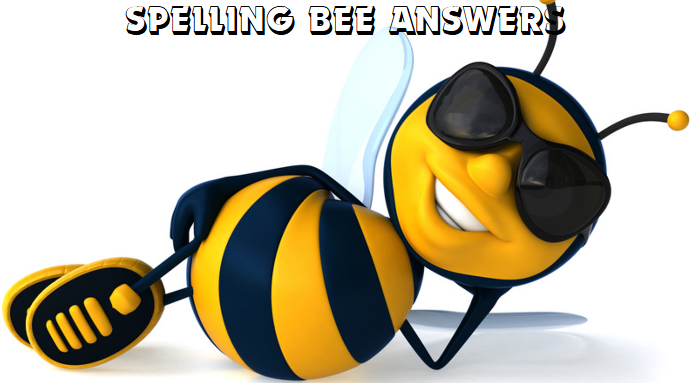Spelling bees are a fascinating and competitive activity that challenges students to demonstrate their mastery of the English language’s spelling rules. These competitions can range from local school-level contests to national and international championships. This article delves into the types of spelling bee answers participants are expected to know, strategies for preparing, common mistakes to avoid, and how spelling bees have evolved over the years.
The Importance of Spelling Bees Answers
Spelling Bee Answers are more than just competitions; they promote literacy, discipline, and cognitive development. Participating in a spelling bee enhances a student’s vocabulary, ability to memorize and recall information, and mental agility. It fosters a sense of accomplishment and helps build self-confidence. Additionally, it serves as a platform for showcasing language skills, and for many students, it is the culmination of months of hard work and preparation.
Also read: What is Things That Need to Be ?
Types of Words in Spelling Bee Answers
1. Basic Vocabulary Words
In the early rounds of a spelling bee, participants are asked to spell simple words commonly used in everyday life. These words are designed to test a participant’s grasp of standard spelling rules and phonetic patterns. Examples include words like “table,” “chair,” and “school.”
2. Spelling Bee Answers Intermediate Words
As the competition progresses, the difficulty level increases. Participants are asked to spell words with more complex syllable structures or unusual letter combinations. These might include words like “trouble,” “biscuit,” and “schedule.” At this stage, contestants need a deeper understanding of spelling conventions and word origins.
3. Advanced Vocabulary Words
In the later rounds, the words become increasingly difficult. These words often contain uncommon letter combinations or originate from languages with different phonetic rules. Words like “juxtapose,” “connoisseur,” and “boulevard” are commonly encountered in these rounds. Spelling Bee Answers Advanced vocabulary words challenge participants to understand the etymology of words, as well as their nuanced pronunciations.
4. Foreign Words of Spelling Bee Answers
Many Spelling Bee Answers, particularly those at national and international levels, include words borrowed from other languages. These words test not only a contestant’s spelling skills but also their ability to identify the origin of the word and apply the appropriate spelling rules. For instance, words like “rendezvous” (French) or “zeitgeist” (German) are frequently used.
5. Spelling Bee Answers Scientific and Technical Terms
At the highest levels of competition, contestants might face words related to science, technology, and medicine. These Spelling Bee Answers words tend to have specialized spellings that are not commonly encountered in everyday language. Words such as “chlorophyll,” “pneumonoultramicroscopicsilicovolcanoconiosis” (the longest word in the English dictionary), or “photosynthesis” challenge participants’ knowledge of technical vocabulary.
The Etymology of Spelling Bee Answers Words
Understanding the etymology, or origin, of a word can greatly assist in spelling it correctly. Many words like Spelling Bee Answers in the English language have roots in Greek, Latin, French, German, or other languages, and knowing these origins can provide valuable clues about their spelling.
1. Latin and Greek Origins
Words with Latin and Greek origins tend to follow specific patterns. For example, many English words ending in “-tin” (like “nation” or “celebration”) come from Latin. Similarly, words that end in “-phobia” (such as “arachnophobia”) often come from Greek.
2. French Influence of Spelling Bee Answers
A significant portion of English vocabulary is borrowed from French, especially words related to culture, law, and food. Examples include “restaurant,” “ballet,” and “entrepreneur.” Understanding the French spelling rules helps in recognizing and correctly spelling these words in a bee.
3. Germanic Roots
A number of English words also come from Old English and other Germanic languages. Words like “knight,” “strength,” and Spelling Bee Answers “dream” have spellings that reflect older conventions of the language.
Spelling Bee Answers Preparation Tips
Success in a spelling bee requires more than just memorizing words. Here are some essential tips to prepare effectively:
1. Practice Regularly
Regular practice is key. Contestants should consistently review word lists, and read books to increase their exposure to diverse vocabulary. Spelling Bee Answers practice apps and online resources also provide access to curated lists of words for various skill levels.
2. Spelling Bee Answers Learn Word Roots and Etymology
Knowing the root of a word and its language of origin can help in guessing its Spelling Bee Answers when faced with unfamiliar words. This is particularly important for more complex words and those with foreign influences.
3. Break Down Words into Syllables
Spelling Bee Answers longer words can be challenging, but breaking them down into manageable syllables often makes them easier to spell. For example, the word “pneumonia” can be broken down into “pneumonia.”
4. Use Mnemonics
Mnemonics Spelling Bee Answers are memory aids that help contestants remember tricky spellings. For instance, the word “accommodate” can be remembered as “two c’s and two m’s.”
5. Focus on Commonly Misspelled Words
There are a number of words that frequently appear in spelling bee competitions and are often misspelled. These include “embarrassment,” “definitely,” and “separate.” Students should make it a point to master these high-frequency words.
6. Spelling Bee Answers Ask for Clarification
During the competition, contestants can request the word’s definition, language of origin, or use in a sentence. This information can help clarify any confusion regarding unusual spellings.
7. Stay Calm and Confident
The pressure of competition can cause anxiety, which might affect performance. Staying Spelling Bee Answers calm and confident is crucial. Contestants should remember that even if they misspell a word, it is an opportunity to learn and grow.
Common Mistakes in Spelling Bee Answers
Even the most experienced spellers can make mistakes. Below are some common pitfalls to avoid:
1. Misunderstanding Homophones
Homophones are spelled differently but sound same. Spelling Bee Answers examples include “there,” “there,” and “they’re.” Contestants must pay close attention to the word’s meaning and context.
2. Overlooking Double Letters
Many words contain double letters, which can trip up spellers. Words like “accommodate,” “committee,” and “success” require careful attention to ensure that double letters are included correctly.
3. Spelling Bee Answers Uncommon Phonetic Combinations Incorrectly
Some words contain letters or letter combinations that don’t follow conventional phonetic rules, such as “ph.” in “phone” or “ken” in “knight.” These irregularities can throw off a contestant’s spelling if they don’t recognize the pattern.
Evolution of Spelling Bees
Spelling bees have evolved significantly over time, especially with the advent of the internet and technology. The National Spelling Bee, established in 1925, has grown from a small event to a major national competition with widespread media coverage. Modern-day participants often have access to online resources, Spelling Bee Answers apps, and even word generators, giving them more opportunities for preparation. Additionally, spelling bees have become more inclusive, with competitions for various age groups and even international contestants.
Conclusion
Spelling bee answers provide a window into the richness and complexity of the English language. Contestants are challenged to recall not just the spelling of a word but also its origins, meanings, and sometimes even its place in history. Preparation is essential, and understanding word roots, practicing regularly, and staying calm under pressure are all crucial strategies for success. Whether at the local school level or the prestigious national stage, Spelling Bee Answers remain a celebration of language, literacy, and learning.

